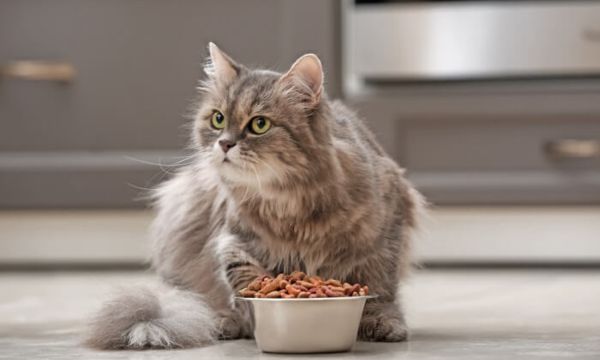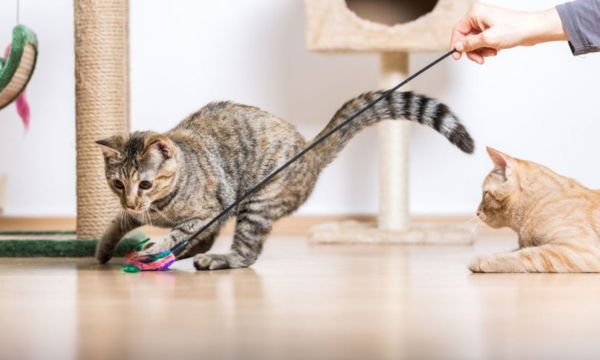Bringing a new kitten into your home is an exciting and joyful experience.
As a responsible pet owner, it’s important to make sure your furry friends receive the best possible care, and that includes feeding them the right food.
A balanced diet is essential for a kitten’s growth, development and overall health. This kitten feeding guide aims to help you navigate the world of kitten feeding with expert advice and practical tips.
Stage 1: The First Weeks
During the first few weeks of life, kittens rely primarily on mother’s milk for essential nutrients and antibodies.
If you are caring for an orphaned kitten, consult your vet for advice on suitable milk replacers.
Ensure kittens who are breastfed by their mothers receive a high-quality diet that contains essential nutrients.
Stage 2: Transition to Solid Food
At about 4-5 weeks of age, kittens begin to show an interest in solid food. Now is the perfect time to introduce high quality kitten food.
Choose a specially formulated kitten food rich in protein, vitamins and minerals to support rapid growth.
You can mix some wet food with formula or water to create a semi-liquid mixture to make the transition easier for kittens.
Stage 3: 8-12 Weeks
At this stage, kittens are still growing rapidly. Feed in appropriate portions 3-4 times a day. Be sure to follow the nutritional guidelines on the package, but remember that these are just general recommendations.
Your vet can give you personalized advice based on your kitten’s development.
Stage 4: 3-6 Months
When your kitten is 3 to 6 months old, you can start reducing the number of feedings to 3 times a day. Continue to offer a balanced diet that includes high-quality sources of protein.
This phase is critical for bone and muscle development, so make sure their diet meets their energy needs.
Stage 5: 6
Months and Olderhe breed and individual growth rate. Keep an eye on their weight and adjust portion sizes accordingly.
General Tips
- Hydration: Always provide your cat with fresh water. Proper hydration supports digestion and overall health.
- Avoid human foods: Keep your kitten away from foods that are toxic to cats, such as chocolate, onions, garlic, and grapes.
- Consult your vet: Every kitten is unique. Regular veterinary checkups ensure your kitten’s nutritional needs are met and help detect any health problems early.
Conclusion
In conclusion, ensuring proper nutrition for kittens is a fundamental aspect of being a responsible pet owner.
The journey from nursing to adulthood is characterized by unique nutritional needs, and this guide provides essential insights to successfully navigate each stage.
Whether you choose commercial food or a homemade meal, ongoing monitoring and consultation with your veterinarian is critical.
A healthy diet means a vibrant coat, unlimited energy and overall health.
By ensuring the right balance of nutrients, eating in moderation and controlling portions, you lay the foundation for a lifetime of companionship filled with joy, health and fond memories.
Your dedication to your kitten’s diet is an investment in his future that not only promotes physical growth, but also creates a strong and lasting bond between you and your feline friend.
Frequently Asked Questions
1. How often should I feed my kitten?
Feeding frequency varies with age. Young kittens will need about 3-4 feedings per day, while older kittens can transition to 2-3 meals per day.
At the age of about 6 months, most kittens can switch to adult food. Consult your veterinarian to determine the appropriate time for this transition, as it can vary depending on t
2. Can I feed my kitten the same food as an adult cat?
Growing kittens have unique nutritional needs. It is recommended that you feed them a specially formulated kitten food until they reach adulthood.
3. Are treats safe for my kitten?
Yes, rewards or training can be given in moderation. Choose treats designed for kittens and make sure they don’t exceed 10 percent of your kitten’s daily caloric intake.
4. Should I feed my kitten wet or dry food?
Both wet and dry food have their own advantages. Wet food provides moisture and variety, while dry food promotes dental health. Some owners choose to combine the two.
5. When can I transfer kittens to adult food?
The timing varies, but is generally about 6 months. Consult your vet to determine the best time for your specific kitten.
6. Can I make my own kitten food?
Yes you can, but careful planning is required to ensure a balanced diet. Consult a veterinarian or cat nutritionist for an appropriate diet.
7. What should I do if my kitten is a picky eater?
Some kittens can be selective when it comes to food. Experiment with different textures and flavors of high-quality kitten food. If the problem persists, consult your veterinarian.
8. How do I know if my kitten is gaining enough weight?
By regularly weighing and monitoring your kitten’s overall appearance and behavior, you can estimate their healthy weight gain.


